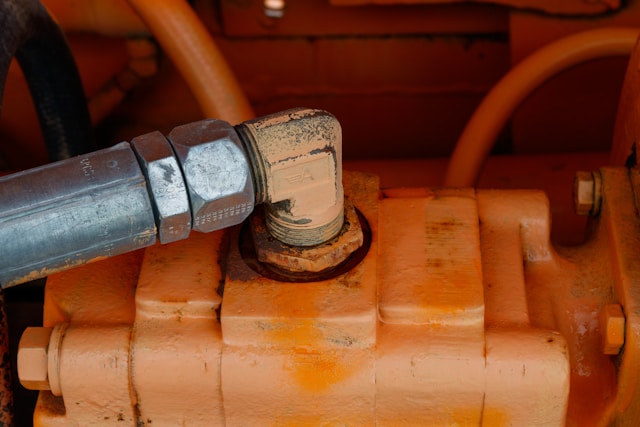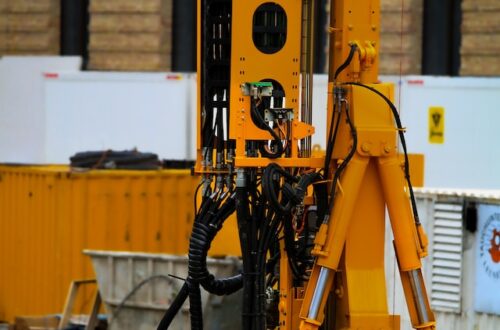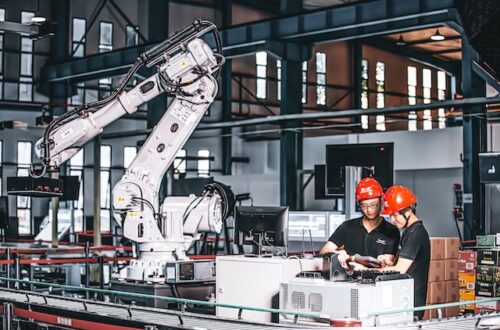
The Importance of Timely Mobile Hydraulic Hose Maintenance
Table of Contents
- Key Takeaways
- Understanding Hydraulic Systems and Their Applications
- Best Practices for Hydraulic Hose Maintenance
- Technological Advancements in Hose Monitoring
- Environmental Considerations in Disposing of Hydraulic Hoses
- The Financial Aspect: Cost-Benefit Analysis of Regular Maintenance
Understanding Hydraulic Systems and Their Applications
Hydraulic systems are the lifeblood of many industries, powering machinery that demands high torque and precise control. The intricacies of these systems lie in their ability to transmit power through fluid movement, typically oil, with hydraulic hoses providing the necessary pathways. Such systems require regular maintenance to function effectively, highlighting the importance of hydraulic mobile hose repair Charlotte, NC. These services ensure that downtime is minimized and machinery operates at peak efficiency; a must in fast-paced industrial environments. The role of hydraulic hoses extends to numerous applications where heavy lifting, high-pressure tools, and fluid dynamics come into play. Construction, agriculture, and manufacturing industries rely heavily on these systems to facilitate many operations. For instance, an excavator on a construction site depends on hydraulic power for digging and lifting, just as a combined harvester uses it for agricultural processing tasks. Given their varied uses, properly functioning hydraulic hoses can mean the difference between running a seamless operation or facing unexpected malfunctions that lead to costly downtime.
Best Practices for Hydraulic Hose Maintenance
Beyond responding to evident hose damage, maintaining a hydraulic system should involve proactive steps to prevent issues from arising. Such best practices include setting a schedule for regular inspections and understanding that different hose materials and environmental conditions will affect wear patterns. The use of appropriate tools for installation and repair, along with ensuring that replacement parts meet original equipment manufacturer (OEM) standards, cannot be overstated. Up-to-date training for maintenance teams is also critical to ensure they understand the importance of their tasks and the procedures that ensure the safety and longevity of their hydraulic systems. As hoses and couplings are subject to wear and tear, choosing high-quality replacements can significantly impact the longevity and reliability of hydraulic systems. Adherence to recognized standards, such as those detailed in the ISO standards for hydraulic hoses, is imperative. These standards guide construction, performance, and quality specifications, ensuring that replacements are up to the demanding tasks of industrial machinery.
Technological Advancements in Hose Monitoring
Technology integration in maintenance processes has introduced a slew of advancements that revolutionize how hydraulic systems are monitored and maintained. Sensor technology allows for constantly monitoring hose conditions, detecting potential issues before they manifest as failures. Incorporating preventative maintenance technology into modern industrial practices, part of the broader movement toward Industry 4.0, equips maintenance teams with data-driven insights. This information can inform future investment in more efficient systems and predict when maintenance will be necessary, streamlining operations and safeguarding against unexpected malfunctions.
Environmental Considerations in Disposing of Hydraulic Hoses
When hydraulic hoses end their service life or are replaced due to damage, their disposal becomes a consideration. The choices made at this stage can have significant environmental implications. Inappropriate disposal methods can lead to contamination and waste. Instead, adherence to sustainable practices in hose disposal, including recycling materials where possible, can significantly reduce the environmental impact. Partnering with specialized waste management services underpins a company’s commitment to environmental responsibility, creating opportunities for responsible stewardship and reinforcing a positive brand image focused on sustainability.
The Financial Aspect: Cost-Benefit Analysis of Regular Maintenance
While the costs associated with regular maintenance may sometimes seem substantial, the long-term benefits far outweigh these immediate expenses. A detailed cost-benefit analysis often reveals a significant net saving over time, considering the costs associated with emergency repairs, not to mention the impacts on production schedules and the potential safety implications of equipment failures. An ounce of prevention, in the form of regular hydraulic hose maintenance, is worth a pound of cure when you consider the financial stability it can bring to an operation reliant on hydraulic power. Such maintenance extends the life of the equipment, making it a wise investment for businesses aiming to maximize their operational efficiency and maintain a competitive edge.




